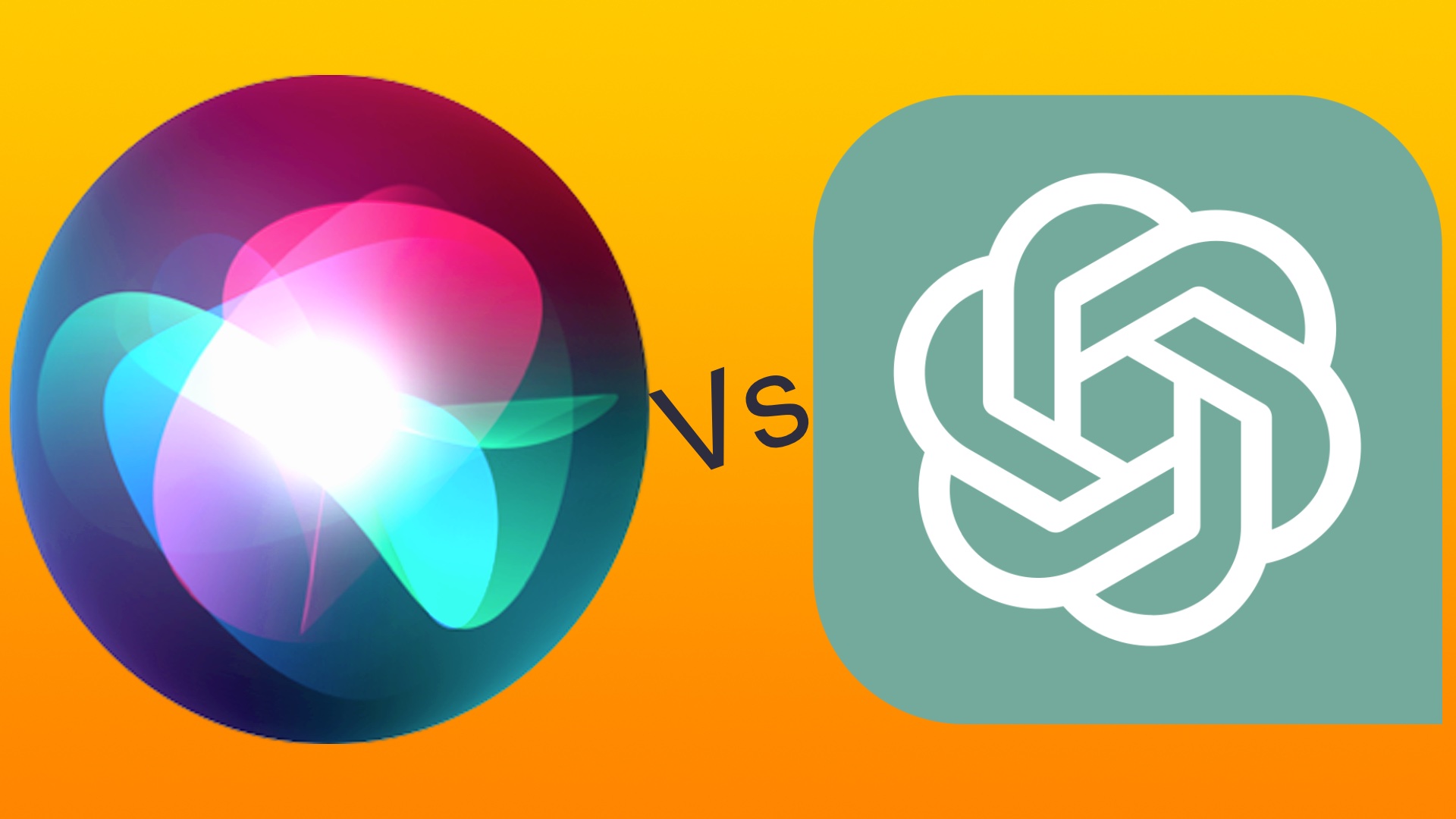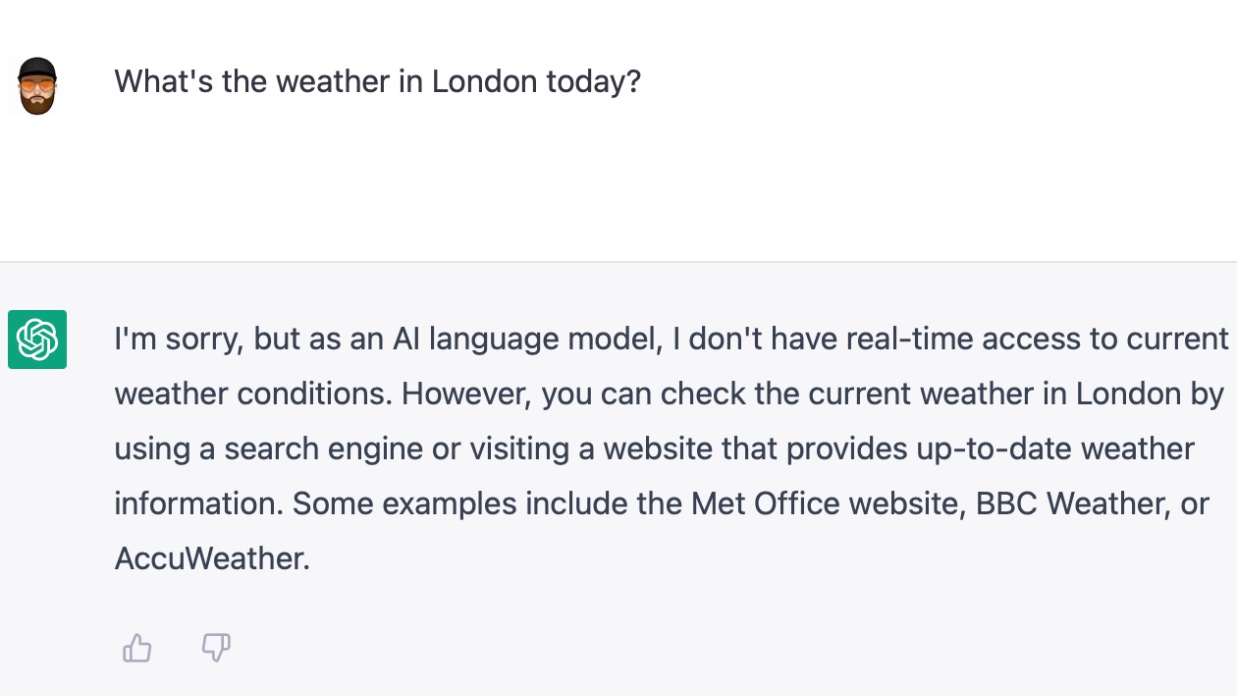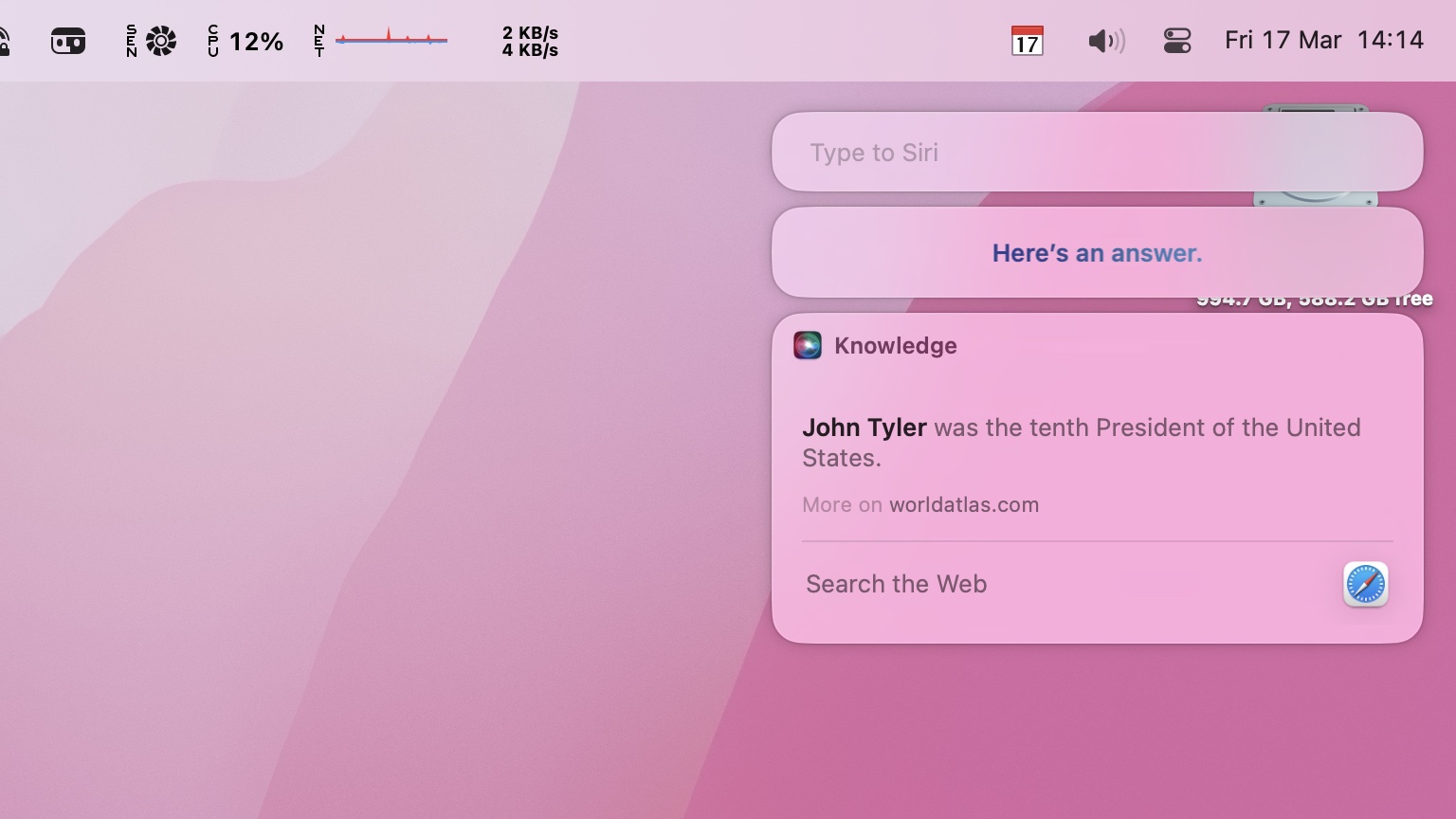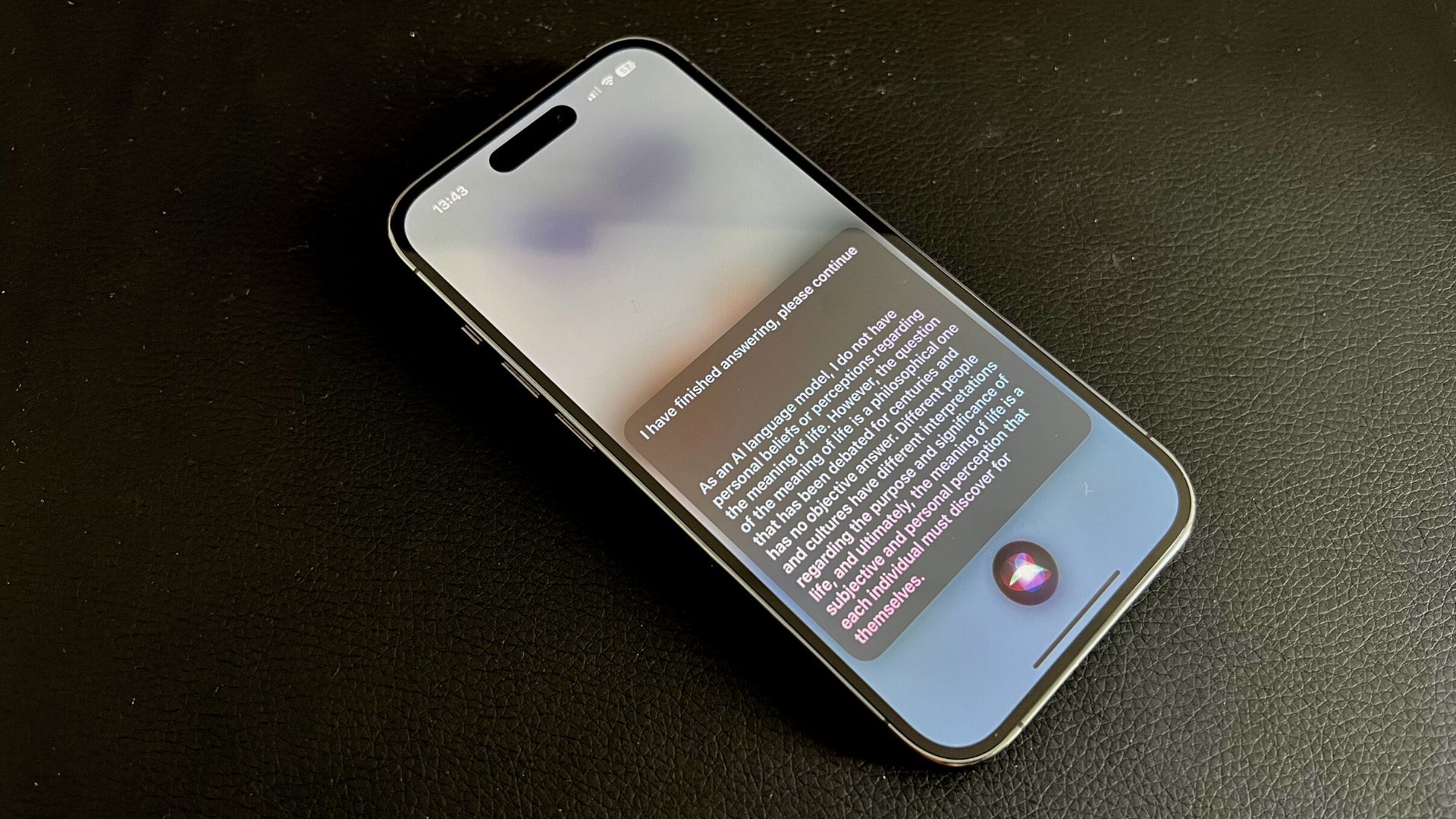Siri vs ChatGPT: Where one falls down, the other excels
Is ChatGPT really all it's cracked up to be or can Siri hold its own?

iMore offers spot-on advice and guidance from our team of experts, with decades of Apple device experience to lean on. Learn more with iMore!
You are now subscribed
Your newsletter sign-up was successful
You really can't take more than three steps across the internet today without falling over someone shouting about how great ChatGPT is. A few steps further and someone else will tell you that Siri could learn a lot from OpenAI's new tool. And they might both be right.
But just how good is ChatGPT and, on the other side of that coin, how bad is Siri? Is it worth the hassle to replace Siri with ChatGPT, as many people have recently been experimenting with? As is so often the case with these things, it might not be as clear-cut as you thought. Both are great, good, bad, and terrible at a variety of things. But there are some things that one is much more suited to than the other.
I wanted to find out which things Siri excelled at, and which things ChatGPT would be the clear winner. So I set out to find out.
Two very different AI
Before we get into the questions and answers, it's important to remember that Siri and ChatGPT are two very different things. They might seem the same because you're talking to a computer when using them both, but the way they work is fundamentally different.
Take Siri, for example. Apple designed Siri to be good at answering basic questions, starting timers, turning on HomeKit lights, and doing it quickly to boot. We can agree or disagree on how well it does those things. but that's the aim.
To make that happen, Siri effectively has a giant database of things that it can respond to, with Apple telling it how to do it. If you ask something that it can't find an answer to, and the database fails it, Siri is a bit lost. It'll give you a website to read in the hope that'll help. But that's about it.
ChatGPT, on the other hand, is very different. ChatGPT is "a large language model developed by OpenAI," it told me when asked. "I am designed to understand and generate human-like text based on patterns and relationships in the vast amounts of data that I have been trained on."
iMore offers spot-on advice and guidance from our team of experts, with decades of Apple device experience to lean on. Learn more with iMore!
That data runs up to September 2021, "which means that any information or events that have occurred after that date may not be included in my knowledge base." Still, ChatGPT says that it is still capable of adapting to new information we give it and plans to continue to learn and improve over time.
Siri? When asked what it was, Siri told me that it was indeed Siri. And that was the end of that conversation. See the difference?
With that said, let's dive into a trio of examples that highlight those differences (and similarities) the best.
Current affairs

The differences between how Siri and ChatGPT work are never more obvious than when asking questions about recent events or something that is either happening right now, or will happen in the future.
In the case of Siri, this is where it can excel. Chat GPT just isn't cut out for such things, however. Because it was trained on data up until September 2021, Chat GPT isn't aware of anything after that date — much less anything that's happening right now.
One easy example is to ask about today's weather. Siri (surprisingly quickly) offers up an answer that's about as accurate as these things can get. The same for a future forecast, for that matter.
But ask ChatGPT and it's a no-go. It'll remind you that it doesn't have real-time access to the current weather conditions. It does, at least, give you some tips on where you can go to get some answers — it recommended the Met Office, BBC Weather, or AccuWeather when I asked it to tell me what was going on outside. But it'd lose this fight even to simple weather apps.
Historical events

When it comes to asking for information on events of the past, both Siri and ChatGPT were capable of getting the job done, albeit in different ways.
You could ask both all kinds of things so long as it happened before September 2021, but I chose to ask who the tenth President of the United States was. The answer, I'm told, was John Tyler. And both Siri and ChatGPT got it right.
But where things differ is in the additional information the pair provided.
Siri was quick to tell me it was John Tyler and that was all it offered up. I asked a question and it gave me an answer. I could get more information if I wanted it, but the response was short and sweet. But accurate, at least.
Over in ChatGPT land, things got more interesting. Did you know that President Tyler served from 1841 to 1845 and that he succeeded Willian Henry Harrison? Did you know that Harrison was only in office for a month? How about that Tyler was the first Vice President to assume the presidency because of the death of a sitting President?
I only know that because ChatGPT told me. And there was more, too. Context. And lots of it made the ChatGPT response more useful, as if being spoken to by a person, not a robot answering a question and nothing more.
Open-ended questions

This is where things really get interesting and when Siri shows that it's little more than software for specific answering questions and turning on lights. That's great if you need it, of course. But ChatGPT is on a whole other level.
Here's an example. I asked both Siri and ChatGPT "If the world's biggest bank collapsed tomorrow, what would happen?"
Siri simply had no idea and did what Apple told it to — it offered up a collection of websites that it thought might be helpful. It effectively Googled the problem and gave me the results. Useful, sure. But I could have done that myself.
ChatGPT by contrast set about answering the question across five paragraphs of text, walking me through the three stages of what would happen should the world's biggest bank meet its maker. It makes for grim reading to be sure, but ChatGPT offered it up and that's much more than Siri could manage.
And with that, we have the real difference between Siri and ChatGPT. Apple's digital assistant is designed to respond to expected requests and commands and then farm everything else out to a Google or Wolfram Alpha query. From there, it's up to the user to do the donkey work.
By contrast, ChatGPT felt like asking the question of someone knowledgeable on the subject matter. Except that subject could be almost anything so long as it happened before that data cut-off. Or is based on a theoretical situation — like my banking question — that could be conceived of, at least.
Siri vs ChatGPT — Who wins?

Ultimately, both Siri and ChatGPT are tools, and they're both pretty good at what they do. The thing is, Siri wasn't built to do quite what ChatGPT was and it doesn't have the data it needs to behave that way regardless. Apple wants Siri to respond in a predictable way each and every time and that isn't what OpenAI built ChatGPT to do. ChatGPT doesn't think for itself, of course. But at times it sure does feel like it is doing just that.
Siri, on the other hand, feels like your iPhone, iPad, Mac, or Apple Watch is following a script. And if the answer isn't on that script, it shrugs and throws up its hands.
That might improve in the future, though. Apple is reportedly testing giving Siri support for natural language generation, possibly giving it the ability to provide answers in new and interesting ways. But it'll still be hamstrung by the way it was built, and the things it was expected to do.
Thankfully, you can get the best of both worlds — it's possible to replace Siri with ChatGPT right now whether you're using the best iPhone money can buy, or something a little older. Just don't expect the latter to be able to turn on your lights or tell you whether you'll need an umbrella.

Oliver Haslam has written about Apple and the wider technology business for more than a decade with bylines on How-To Geek, PC Mag, iDownloadBlog, and many more. He has also been published in print for Macworld, including cover stories. At iMore, Oliver is involved in daily news coverage and, not being short of opinions, has been known to 'explain' those thoughts in more detail, too.
Having grown up using PCs and spending far too much money on graphics card and flashy RAM, Oliver switched to the Mac with a G5 iMac and hasn't looked back. Since then he's seen the growth of the smartphone world, backed by iPhone, and new product categories come and go. Current expertise includes iOS, macOS, streaming services, and pretty much anything that has a battery or plugs into a wall. Oliver also covers mobile gaming for iMore, with Apple Arcade a particular focus. He's been gaming since the Atari 2600 days and still struggles to comprehend the fact he can play console quality titles on his pocket computer.
